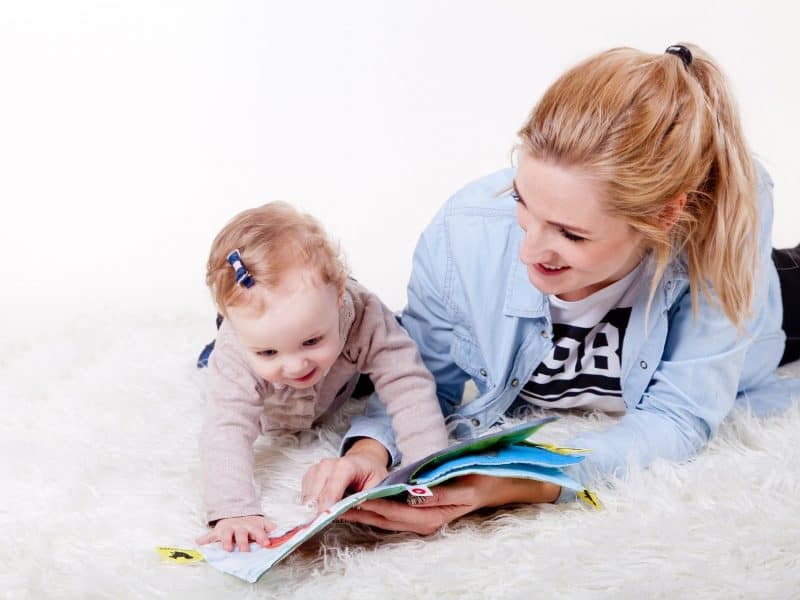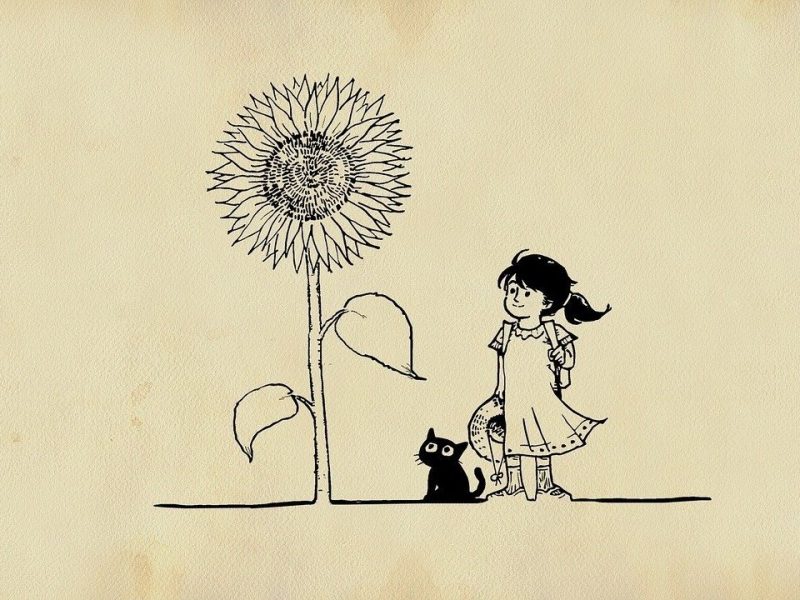I don’t believe there is a child who doesn’t enjoy a story, whether it is one read from a book, watched on a screen or made up by the teller. From a very young age children understand much more than they have the language to articulate themselves. They understand quite complicated sentences long before they can string words together in a similar sentence or hold conversations.
The more they hear you speak to them, the more language they understand and the quicker they learn to speak to you.

By starting to read to your baby or young child you are introducing them to lots of different stimuli. Not only new words, new ideas, new pictures but to questions and answers. Then of course, there is the delight of the story. Most children, when asked, say that their favourite stories were the ones their parent or grandparent told them. They especially liked the made up stories that just developed in the telling.
Psychologists say that we all have creativity within us. It is not a gift for the few. How we express it is largely down to our personality. We don’t have to be gifted to be creative.
Not all of us have the gifts of music, art, craft or science. But all these and more need creativity. Imagination and creativity are closely entwined. Stimulating your child’s imagination is a wonderful way to encourage creativity and creative thought. It is also fun. Children respond so quickly to imaginative play and learn so fast.
Reading and telling stories with your children can be a precious time together. Telling stories can be done at any time, on a journey, waiting in a queue, walking, to relieve anxiety and to pass the time.
Here are some ideas to start you telling your own stories, and your children telling their own stories.
Find an object, a stone, a scarf, a ring, a leaf, and tell a story about it. Perhaps it is part of an adventure story, or a detective story, or a fairy story. Let your child tell their version of a story about the same object. It can be as silly or as fanciful as you like. There are no rules, unless you want to ban unacceptable language.
Start a story and pass it on to the next person. If you can’t think of an idea just start to speak – you will be amazed by what happens. The words “Once upon a time there was….” can be a great help.
Ask a question “What do you think the boy in the picture book is going to do/Why does the giraffe have brown patches/How can you get to the moon without a rocket/What would it feel like if it rained jelly? Then tell a story to answer the question. They can be very short stories, funny, serious or mundane. It’s the telling and listening that’s important.
Recount your day and tell it as a story. If you want to you can all be fairy tale characters. So if you all went shopping to the supermarket you could be a beautiful princess and a handsome prince who flew to their secret treasure house, full of wonderful things from around the world.
It is fun to think that when you tell stories, or read books with your children, they will in turn do the same for theirs, and they for theirs. Generations of happy times and creative thinkers.
Small children will tell their siblings and other children stories to amuse them, sooth them if they are crying or just because it is a good way to pass the time and prevent boredom.
But boredom is good – and that’s another story.

